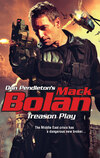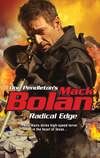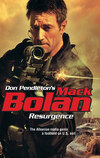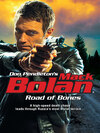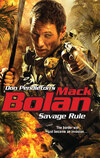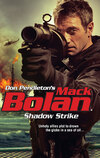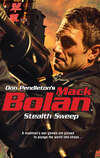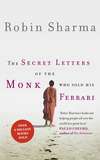Kitabı oku: «Treason Play», sayfa 5
CHAPTER NINE
Yuri Sokolov sat in the cabin of his Gulfstream executive jet. He listened to the engine’s whine as the craft cut through the air over Asia. Thoughts of what lay ahead rolled through his mind. It comforted him to think of such things, distracting him from the horrible thing sealed in a special smuggling compartment built into the aircraft, one normally reserved for weapons or drugs.
Absently he grabbed at the cloth napkin folded over his left thigh, dabbed imaginary beads of sweat from his upper lip and returned the napkin to his lap. He’d meet Haqqani in Karachi in a matter of hours, at the airport, where he could pass along the horrible substance the plane carried.
Then he’d get back on the plane and get his ass back out of Karachi. Fast.
He noticed his left foot tapping out a rapid-fire beat and willed himself to stop. What the hell is the matter with you? he wondered. Quit acting like a damn child and do this.
A tumbler of vodka was clutched in his right hand. Bringing it to his lips, he drained it, thankful he was alone. If the others—the ones who signed his paychecks—saw him acting this way, jumping at shadows that existed only in his mind, they’d kill him.
A rueful smile crossed his lips. Rising to his feet, he crossed the cabin to a wet bar and poured more vodka. After ten years with the KGB and then with the FSB, you’d think you’d be used to danger, he told himself. And used to bad bosses. He’d had more than his share of both through the years.
But these people, the ones with the Seven, were the worst. It’d all seemed so good up front. They’d showered him with money. And with women, lots and lots of women, he thought, allowing himself another smile. And it’d all seemed pretty easy. Carry a couple of suitcases filled with the money to Sunnis insurgents in Iraq. Ferry precision-machined centrifuge parts to Iran. He essentially was a well-paid delivery man. Very well paid.
But this…
This could start a war. Start many wars.
Enough, he told himself. His job was to deliver, not to worry about consequences. He was a foot soldier and foot soldiers, in his view, did what they were told. They let smarter people worry about the consequences.
He sank back into one of the jet’s plush seats. Besides, they’d assured him all this was temporary, essentially a ruse. He’d pass along the materials. They’d take them back later—by force if necessary. Sokolov ran his fingers through his thinning, reddish-brown hair. He didn’t trust Daniel Masters as far as he could throw the little British fuck. Didn’t trust any Englishman, for that matter, especially not one willing to undercut his homeland. But even that oily bastard wouldn’t lie about something so important.
No, he told himself, Masters wouldn’t lie about this.
And, if he did, frankly, it wouldn’t matter. Masters had the Council of Seven convinced he knew what he was talking about. Therefore, he held all the cards. In Sokolov’s little world that meant shutting up and doing as he was told.
And he’d do that.
Even if it brought Armageddon down on the whole world.
SOKOLOV WATCHED NAWAZ Khan push his way through the door of the aircraft, followed by an entourage of maybe a half dozen men.
The Russian made no effort to hide his disgust at the Pakistani. Sokolov’s brother, a Spetsnaz soldier, had been killed in Afghanistan, the personnel carrier he was traveling in pulverized by a Stinger missile, one presumably supplied by the United States. In light of that, he had little use for the Pakistanis, or the United States, for that matter.
Nawaz Khan marched up to within a foot of the Russian and stood, his fists cocked on his hips, and stared at Sokolov.
“You have it?” Khan asked finally.
“Yes.”
Khan nodded approvingly. “And you can show us how to use this material?”
“Of course,” Sokolov replied.
“Good.”
A phone trilled from somewhere in the knot of men positioned behind Khan. From the corner of his eye, Sokolov saw one of the men bring a phone to his ear and heard him utter what the Russian assumed was a greeting, though he didn’t understand the language. The man paused and listened. When he spoke again, the volume of his voice rose. Though Sokolov couldn’t understand what the man was saying, he easily recognized the distress in the man’s voice. By now Khan had turned to look at his assistant. The arch of the Pakistani’s eyebrows, the ripple of his cheek muscles as he clenched and unclenched his jaw betrayed his worry, Sokolov thought.
When the man hung up the phone, he looked at Khan.
Khan gestured at Sokolov with an open palm. “Excuse me,” he said. He turned and walked with his assistant to another section of the cabin, out of earshot of Sokolov, at least at first. As the conversation progressed, Khan’s voice rose to a point where Sokolov could hear the conversation even though he couldn’t interpret the words spoken. Khan occasionally punctuated his statements by jabbing his index finger into the man’s chest. When the conversation ended, the man turned and exited the airplane while Khan came back to Sokolov, a strained smile plastered across his lips.
The Russian flashed a smile of his own. “Trouble?”
Khan shook his head. “Nothing we can’t handle. This business we’re in, it occasionally yields some surprises, yes?”
“Expect the unexpected,” Sokolov replied.
“Certainly.”
Sokolov stepped forward, bent his head until his face hovered within inches of Khan’s own. The former KGB agent’s smile faded. “If you have trouble on your hands,” he growled through clenched teeth, “you better damn well deal with it before it becomes our trouble, too. You understand me, yes?”
Khan swallowed hard and nodded. “Yes.”
“Good, I feel better already,” Sokolov said.
Khan nodded in the direction of his entourage. “You can supervise them as they unload the cargo? You know better than they do how to handle the material.”
“Damn straight I do.”
CHAPTER TEN
Binoculars pressed to his eyes, Bolan studied the warehouse. He was on the roof of a neighboring building, crouched next to a large chiller unit, his body enveloped by shadows.
He’d been situated there for hours, studying the number of guards, their patterns of movement, their weaponry, making note of it all in his mind.
Thus far, he’d logged two trucks within the past hour rolling into the warehouse. Both were nondescript, large tractor-trailer rigs, engines growling, pipes belching smoke into the air. He’d been unable to get a good look at the drivers, though that mattered little to him, either.
He was more concerned with what lay inside the warehouse than anything else.
According to intelligence gathered by Stony Man Farm, Khan owned the warehouse through a web of shell companies, and it was believed to be a transit point for some of the weapons the Pakistani shipped to conflict zones worldwide.
Hitting the facility would accomplish two goals as far as Bolan was concerned. One, he could hobble Khan’s weapons-smuggling ring and—at least temporarily—prevent deadly weapons from getting into the hands of killers. Second, since Khan had submerged out of sight, Bolan figured his best tack was to drop some depth charges and bring the guy back to the surface. Sort of like fishing with hand grenades.
But first he wanted to make sure he had the right spot.
The intel he had was good, but he wanted to make sure it was right. The only way to do that was to check out the place himself.
He had changed into his combat blacksuit and smeared black camo paint on his cheeks, nose and forehead. The sun had fallen hours ago, taking down the heat considerably, making the surveillance gig more tolerable.
Grabbing his gear, the soldier got to his feet. He carried with him the usual handguns and also had brought along a Heckler & Koch MP-5 K. He looped the SMG’s strap over his head and right shoulder, then pulled on a lightweight black trench coat to hide his weapons and other gear.
Walking up to the edge of the roof, he set both palms on the ledge, swung first one leg, then the other over the side and lowered himself slowly until he hung from his fingertips. Releasing his grip, he dropped to the top landing of the fire escape below, folding into a crouch. He scrambled down the stairs until he reached the final landing and, releasing the ladder, dropped to the alley below. Light in the alley was limited. Bolan glided along the wall of the building he’d just left. He stopped at the corner, flattened his back against the wall and stole a glance around the edge and saw that the target warehouse remained busy. A tractor-trailer idled outside the building.
The soldier surged across the street to the outer perimeter of the warehouse, using the big truck for cover.
From his surveillance, he’d gathered that one or two guards patrolled the exterior at any given time. They didn’t wear uniforms, but instead dressed in khakis and royal-blue polo shirts. They looked as much like insurance salesmen as anything else, except for the pistols clipped to their belts. They appeared to communicate via mobile telephone rather than with radios. Both guards had deep brown skin and jet-black hair, and Bolan guessed they were of south Asian extraction.
One of the men was tall, wide and thick, built like a weightlifter. He wore his hair cut close to the scalp and rested the palm of his right hand on the butt of his pistol. The second guard was big, too, but soft, dumpy. A lit cigarette dangled from his lower lip.
He’d ignited that smoke with his previous one. The man paced continuously, his gaze sweeping over the area. Bolan was unsure whether the guard was careful or nervous or both.
The weightlifter stood in the center of one of the bay doors and glowered at the idling truck in front of him, as though he held it back with the sheer force of his will.
Bolan loosened his trench coat. His hand dipped inside and he fisted the MP-5’s pistol grip, but kept the weapon hidden beneath the folds of the coat. When he reached the warehouse, he crept alongside its exterior, making sure to keep his ears attuned for any signs of danger such as footsteps from ahead or behind. Other than the rumble of the truck engine and an occasional shouted command from one of the guards, Bolan heard little else.
Earlier in the day, Aaron Kurtzman had tracked down a set of architectural drawings of the warehouse, and Bolan had done his best to memorize the details. When he reached the entrance, he peeled off the trench coat, rolled it up and tossed it into a nearby fifty-five-gallon drum that was partially filled with garbage.
The soldier tried the knob and found it was locked. The door was secured with a dead bolt. Kneeling, Bolan reached into one of the slit pockets on his blacksuit and withdrew a set of lock picks. Within minutes, he’d opened the door.
Stepping across the threshold, the soldier blinked involuntarily at the light as he pulled the door shut behind him. As his eyes adjusted, he swept his gaze over the warehouse’s interior. Overhead, catwalks crisscrossed the cavernous space. An overhead crane, presumably used for moving the large shipping containers, was suspended from the ceiling.
A half dozen or so palettes piled high with crates were scattered around the warehouse. He studied the crates and saw that they had markings that identified the contents as auto parts. The soldier crouched beside one of them. A padlock sealed the crate, telegraphing that it didn’t contain auto parts regardless of the markings stenciled on the sides in French and German.
Bolan picked open the padlock and lifted the top. Digging his way through the shredded packing materials, his fingertips quickly struck something hard. As he cleared away the packing materials, the soldier found four rectangular steel cases piled on top of one another. Opening the top case, he found a Kalashnikov AK-47 and several curved magazines. He quickly shut the case, then sealed the crate, putting the padlock back in place.
The soldier uncoiled from his crouch and wound his way between the stacks, mentally cataloging more than a dozen similar crates. He headed toward the large bay doors, using parked forklifts and stacked pallets for cover.
When the murmur of voices reached him, he melted into the shadows provided by several larger shipping crates lined up along a wall.
Peering from the shadows, he saw five men standing in a semicircle. A forklift burdened with a single crate stood to one side. Bolan recognized two of the men as the exterior guards. The three other men each carried an AK-47.
One of the men, his complexion a deep brown, a long unkempt beard hanging from his chin, was waving his arms and speaking in a loud voice at the others. The man spoke English, and Bolan thought he detected a British accent.
“Something’s going on,” the man said. “You think we don’t hear things on the street? The Americans are looking for Khan! If they’re looking for him, that means they’ll come looking for us, too.”
The heavyset guard gestured for the other man to shut up. “You don’t know what you’re saying. Listen to you. You’re like a child, scaring himself with silly stories.”
“Silly? I heard what happened to Sharif. I know he was killed. He and his people all are dead!”
Bolan watched as the fat man’s lips turned up in a humorless smile. “Sharif was a fool.”
“Fool or not, he’s dead. And he was killed by the Britisher.”
“You don’t know that.”
“Bullshit, the Englishman killed Sharif, shot him in the head to silence him. He’s supposed to be on our side, but he gunned down Sharif in cold blood. What the hell was that about?”
The fat man realized he was losing the argument. When he spoke again, Bolan noticed a hard edge had crept into his voice.
“Look, if you don’t like the deal you’re getting, maybe you’d like to join Sharif.”
“Fuck you,” the other man snapped. “Just give me the shipment and I’ll move it out of here. You know I’ll do it. It’s not like I have any damn choice.”
Something in the man’s tone struck the soldier. Why didn’t this guy have a choice? Was he being coerced in some way or just playing victim? Regardless, the guy seemed disgruntled and scared enough that Bolan probably could pump him for information.
But first, he had to deal with the situation at hand.
Moving in a crouch, the soldier came around the crates he’d used for cover. The bearded guy who a moment ago had been complaining glimpsed Bolan first. His eyes widened and locked on the big American.
The nervous guard on steroids noticed the change in the guy’s face. He wheeled around while his hand clawed at his sidearm. The MP-5 spoke first, chugging out a brutal burst that stitched the guard from left hip to right shoulder.
Pistol already freed, the heavyset guard pivoted toward Bolan. The guard’s pistol cracked and a bullet sizzled just past the Executioner’s temple. Before the guy could correct his aim, Bolan squeezed the H&K subgun’s trigger and loosed a concentrated burst that shredded the man’s torso. As the guard crumpled to the ground, Bolan trained the MP-5’s barrel on the three men, all of whom stood frozen and stared at him.
Bolan ticked through the numbers in his head. He’d seen four guards enter at what seemed to be shift change. Two were done, leaving as many unaccounted for.
He wagged the MP-5’s barrel.
“On the ground,” he growled between clenched teeth. Two of the men, including the bearded man who’d been speaking a few minutes before, complied immediately. The third man, who looked no less terrified than the others, hesitated. When he glanced at the others and saw them going to ground, he mimicked their behavior. Bolan guessed the man didn’t speak English.
The soldier’s combat senses screamed for his attention. On instinct, Bolan spun to the left. In the same instant a gunshot registered with him and a bullet whistled past his head. He spotted a guard, pistol held in front of him in a two-handed grip, who had tried to sneak up on the soldier’s flank. Bolan whipped the MP-5 around, triggered a blistering barrage of 9 mm slugs and dragged the weapon in a horizontal line. The gunfire cut the man down like a scythe slashing tall grass.
Bolan guessed that, if the fourth guard remained in the building, he’d seen the carnage unfolding either firsthand or via security monitor screens. The big American walked to the three men laying on the ground, all of whom were trying to sneak looks at the soldier.
“You two,” he said to the men closest to him, “get the hell out of here.”
The first man scrambled to his feet and put his hands in the air. The second man, the one who seemed to not understand English, saw that the first man was standing and followed suit.
“Go,” he said. He gestured toward the doors with his submachine gun. Turning, they headed for the door. Bolan had no illusions. Just because they’d complied and left without a fight, didn’t mean they wouldn’t call Khan and alert him to the raid on his warehouse. It mattered little to him; he planned to be gone soon enough.
The Executioner walked up to the third man and nudged him in the thigh with the toe of his boot. The guy took a sharp intake of air, but turned his head and chanced a look up at the soldier.
“On your feet,” Bolan said.
The man rose quickly to his feet and raised his hands above his head.
“Don’t shoot,” he said.
“I won’t,” Bolan replied.
The man shot the soldier a confused look. “You just killed three of Khan’s guards. Why the sudden mercy?”
“You’re an inquisitive SOB. I need you to send a message to Khan. Yeah, Khan. The big guy. You ready?”
The guy swallowed hard, but nodded.
“Tell him I’m just starting. I’m going to destroy every last piece of property, every business, every weapon he has. Then, when I’m done with that, I’m going to destroy him,” Bolan said.
“Who are you?”
“Cooper. He’ll know.”
“He’s not going to take this well.”
“Good.”
“Can I go?” the guy asked.
“Not yet,” Bolan said. “A couple of minutes ago, you said you had no choice but to follow Khan’s orders. Why is that?”
The man cast his eyes downward and studied the tops of his shoes for several seconds. When he looked back up at Bolan, all the fear had drained away, replaced by a steely anger.
“He has my half sister.”
“Captive?”
“Might as well be.”
Bolan knew he was running out of time, but he wanted to know more.
“Explain.”
“She’s a prostitute,” the man said. “A whore, okay? Khan runs whores here in Dubai. He lures women, poor women like her, from Karachi and brings them here to have sex for money. Even if she could leave Khan’s organization, she couldn’t go home again. Not to Pakistan, anyway.”
“And you got involved in this how?”
The guy shrugged and uttered a humorless laugh. “I came here to help her. I had a little money and thought I could pay Khan to let her go. Instead he has me driving a truck for him.”
“And whenever you step out of line, someone threatens your sister,” Bolan concluded.
“Yeah.”
“You won’t have to worry about Khan much longer,” Bolan said.
Nodding, the guy turned and took a step toward the truck.
“Stop,” the soldier said.
The guy halted in his tracks.
“You have cargo in there?” Bolan asked.
“Sure, we just loaded it.”
“Is it your truck?”
“Like I could afford this,” the man replied.
“Then leave it. Toss the keys and get the hell out of here.”
The man did as he was told. He was gone within a minute.
Bolan searched the rest of the premises, checking the contents of shipping containers and planting explosive charges along the way. Inside one of the offices, he found a laptop resting on a desk, the power still on. He turned the machine off and stuffed it in his satchel, figuring that maybe Kurtzman could mine it for additional information.
After Bolan exited the warehouse, he walked around its perimeter one last time, making sure the area was clear of bystanders. With that accomplished, the soldier left the premises and put some distance between himself and the warehouse. He punched a couple of buttons on a detonator. A heartbeat later, thunder pealed from a block away. A sudden flash of daylight seemed to illuminate the sky before it winked out. Bolan glanced over his shoulder and saw black oily clouds boiling up from the blast site, choking the night sky. Debris from the pulverized warehouse rained to the ground.
He headed for his car, his mind already focused on his next target.
Ücretsiz ön izlemeyi tamamladınız.
